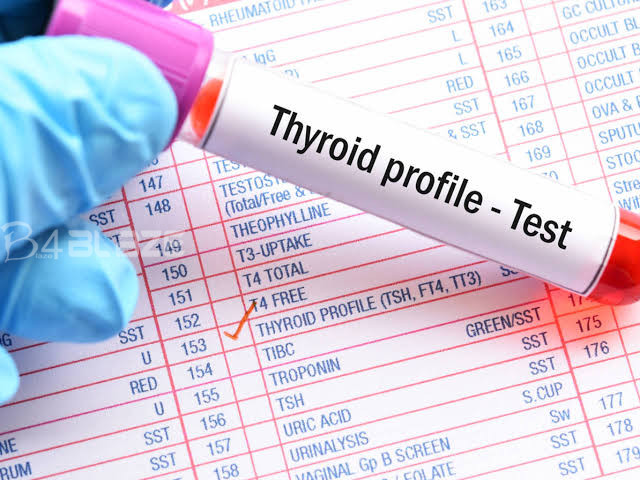Your body’s metabolism works well when your thyroid gland is functioning as it is supposed to. When there is an imbalance, thyroid profile tests will provide valuable insights.
The thyroid gland is responsible for controlling various body functions, including regulating metabolism. A thyroid test checks whether your thyroid gland is working well. If, for some reason, it is not functioning optimally, your body may or may not show signs. That is why you need to take regular thyroid profile tests. These tests check for the levels of TSH, T3, T4 and antibodies in your bloodstream. The results help the doctor to assess whether there is thyroid dysfunction or not.
What is the Thyroid Gland? How Does it Work?
The thyroid gland is a butterfly-shaped organ on the neck near your Adam’s apple. It secretes twotypes of hormones called T3 and T4, responsible for your body’s metabolism and energy. TSH is another hormone produced in the pituitary gland. It signals the pituitary gland to release T3 and 4T4 hormones. It also tells the pituitary gland to produce more or less hormones in case of overactive and underactive thyroid. This entire function is the reason why doctors ask for thyroid profile tests to see whether your thyroid is working correctly.
Which Tests Are Included in Thyroid Profile Test
A thyroid profile test, also known as a thyroid function test, is a series of blood tests that assess the functioning of your thyroid gland. It typically includes the following key thyroid-related tests:
Thyroid Disorder Symptoms
Various symptoms occur when someone has a thyroid dysfunction. However, the symptoms are often similar to the signs of other medical conditions. This is why a thyroid test is best to check if you have a thyroid disorder.
The symptoms are divided into two parts. Each has a different set of symptoms.
Hypothyroidism occurs when there are fewer hormones. This condition shows symptoms such as the following:
Hyperthyroidism is when there are too many hormones in your bloodstream. This condition shows these symptoms:
Importance of Thyroid Profile Testing
A thyroid profile test is essential because it can help diagnose and monitor thyroid disorders, such as:
Other reasons to do thyroid profile testing:
Who Should Get Tested
Thyroid disease can affect individuals of all ages – infants, women, teenagers, adults and older people. It can be present at birth or develop later.
How to prepare for your thyroid test
You don’t need to prepare for anything. You can eat and drink normally before your test. However, in some cases, your doctor might ask you to fast for 12 hours if they require additional blood reports.
What to expect during your test
There are two ways to do the test. You can either go to your local clinic or opt for an at-home thyroid test, in which a healthcare professional will visit your home to take your blood sample.
In both options, the provider will take your blood sample from your vein. The first step will be to sanitise the area and insert a sterile needle. The blood is then drawn and inserted into a tube to be sent to a lab for analysis. The process is completely painless and takes about 2-3 minutes.
What to expect after your thyroid test
Once you have your results back from the lab, your healthcare provider will discuss the findings with you. If you have abnormal reports, you might be recommended additional tests. Your doctor will also discuss the treatment plan, prescribe medications or advise lifestyle changes.
In conclusion, the thyroid profile test is vital to know how well your thyroid gland is performing. A thyroid imbalance can impair your body functions and affect your quality of life. Adding this test to your annual healthcare will help you catch thyroid disorders early. Subsequently, this will help in better and more effective treatment.
























